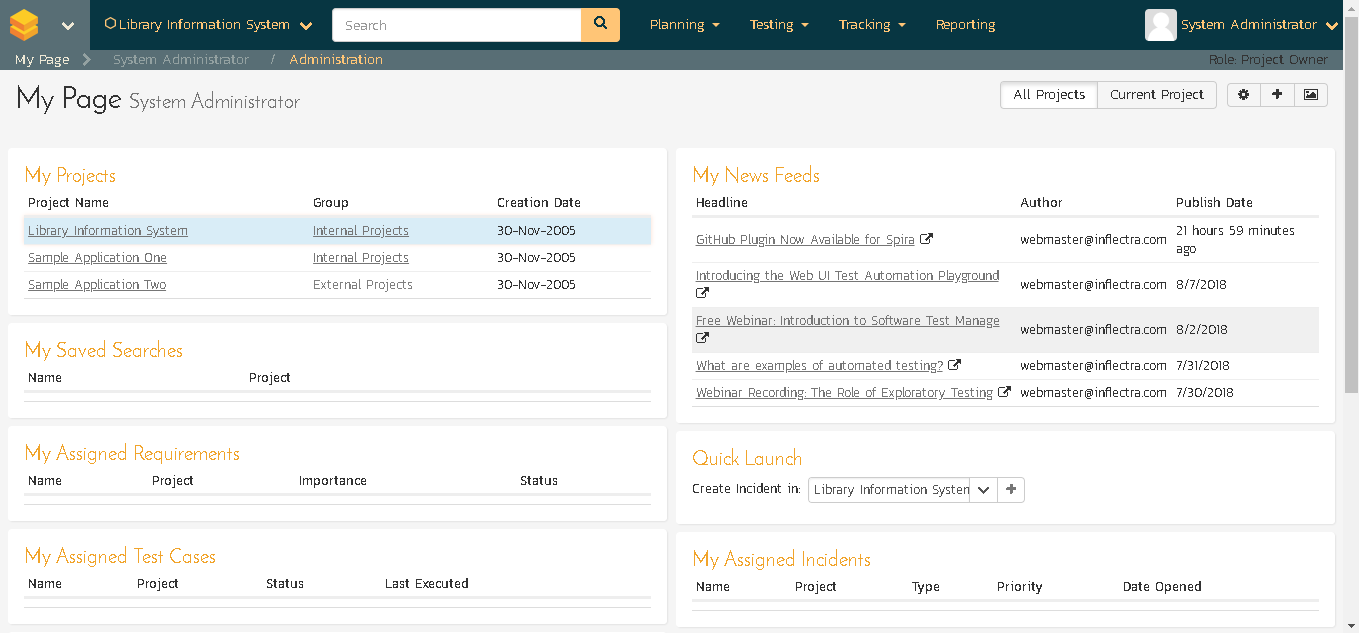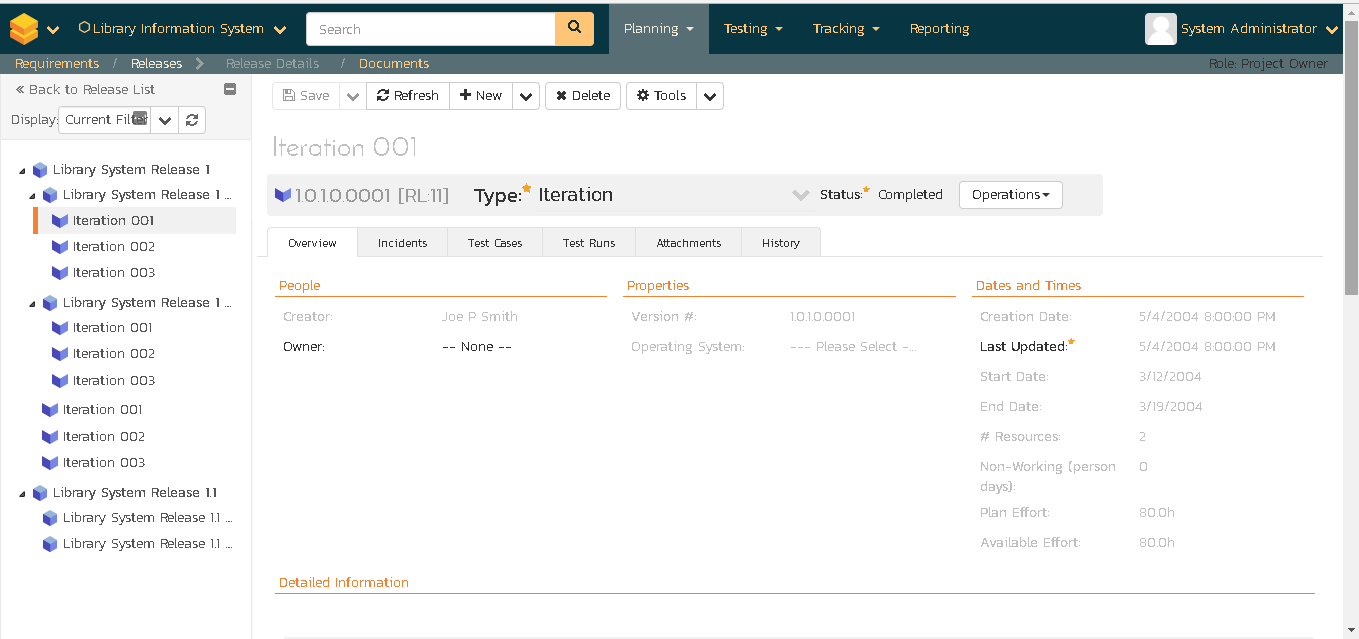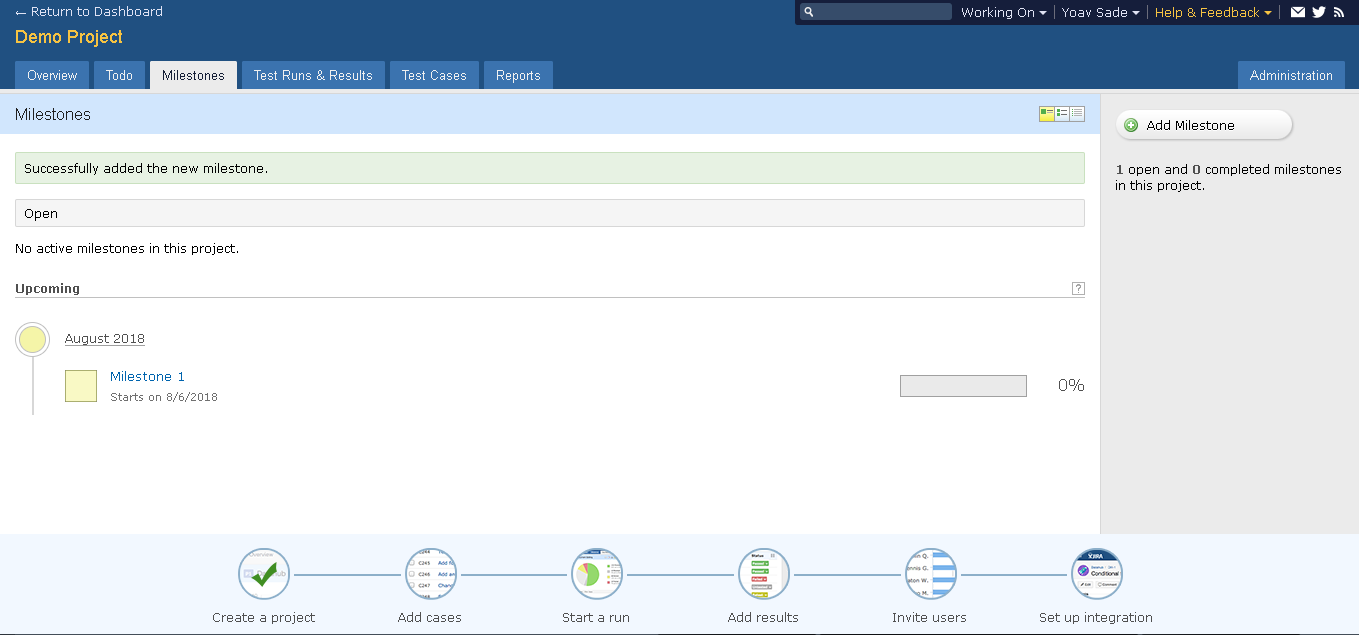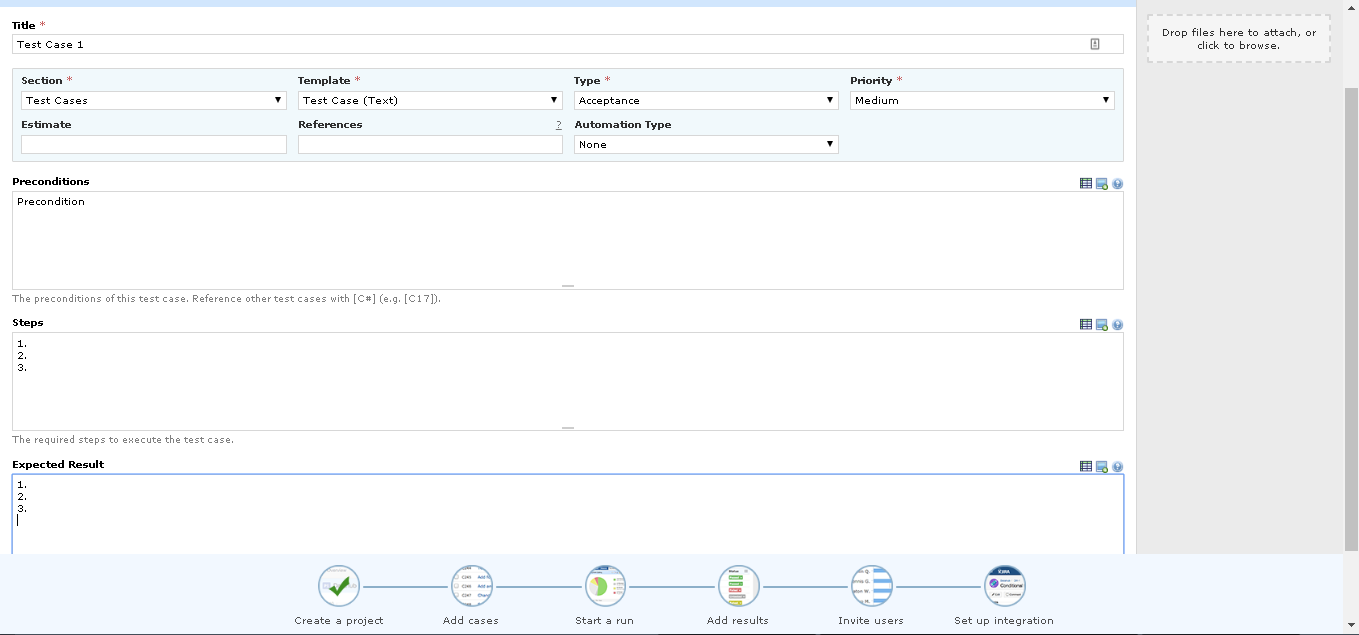SpiraTest vs. TestRail
Choosing a Test Case Management tool is not a simple task. The truth is that there is not one tool that is objectively better. You should choose the tool that fits your own QA process best. So, the key is knowing what features you need, and then finding out which of solutions available matches your requirements.
SpiraTest vs. TestRail At a Glance
Both SpiraTest and TestRail have basic test case management capabilities.
The main difference between these two platforms is that TestRail relies on 3rd party integrations for requirements and issues management as it doesn’t have these modules at all while SpiraTest has Requirements and Issues management modules.
Both tools do not have compliance and security certifications such as SOC2 Type2, which might be an issue for enterprise organizations.

“We evaluated several different test management platforms and chose PractiTest as our company standard. We are now consolidating our various test management systems into PractiTest.”
– Arthur Meloy, VP Site Reliability Engineering at NCR
How SpiraTest and TestRail Stack Up
The following comparison reviews the main features to take into account when considering which one will best fit your QA needs.
Want to elevate your software testing to new heights? Discover a superior solution with PractiTest, an industry leader in test management. Click below to start your exclusive 14-day trial and experience its advanced capabilities.

| SpiraTest | TestRail | |||||||||||||||||||||||||||||||||
|---|---|---|---|---|---|---|---|---|---|---|---|---|---|---|---|---|---|---|---|---|---|---|---|---|---|---|---|---|---|---|---|---|---|---|
| See who is scored higher than SpiraTest | See who is scored higher than TestRail | |||||||||||||||||||||||||||||||||
| Requirement and User Stories Management | ||||||||||||||||||||||||||||||||||
|
||||||||||||||||||||||||||||||||||
| Test case management | ||||||||||||||||||||||||||||||||||
|
||||||||||||||||||||||||||||||||||
| Test Sets and Execution Management | ||||||||||||||||||||||||||||||||||
|
||||||||||||||||||||||||||||||||||
| Issue management | ||||||||||||||||||||||||||||||||||
|
||||||||||||||||||||||||||||||||||
| Time-Based Testing Iterations Management | ||||||||||||||||||||||||||||||||||
|
||||||||||||||||||||||||||||||||||
| Integrations | ||||||||||||||||||||||||||||||||||
|
||||||||||||||||||||||||||||||||||
| Customization | ||||||||||||||||||||||||||||||||||
|
||||||||||||||||||||||||||||||||||
| Reporting | ||||||||||||||||||||||||||||||||||
|
||||||||||||||||||||||||||||||||||
| AI-Powered Test Management | ||||||||||||||||||||||||||||||||||
|
||||||||||||||||||||||||||||||||||
| Additional Features | ||||||||||||||||||||||||||||||||||
|
||||||||||||||||||||||||||||||||||
| Security and Certifications | ||||||||||||||||||||||||||||||||||
|
||||||||||||||||||||||||||||||||||
| Service and Support | ||||||||||||||||||||||||||||||||||
|
||||||||||||||||||||||||||||||||||
| Compare SpiraTest to PractiTest | Compare TestRail to PractiTest | |||||||||||||||||||||||||||||||||


Pros and Cons

Pros:
- Part of a complete development toolset
- Concurrent licenses available
- Release module
- Mobile responsive
- Cloud and server solutions
Cons:
- Rely on Amazon security compliance
- Many features are available only for more costly tools or at an extra charge
- Jira panel doesn’t give visibility into testing information for Jira users
- No Faceted search
- Exploratory test behaves almost the same as scripted test
- No Kanban board

Pros:
- Part of a fuller applications portfolio
- Milestones modules to manage releases
- Competitive price
- Includes both cloud and server solutions
- Easy, intuitive use
Cons:
- No requirements and issues modules
- Jira integration is less robust because issues cannot be viewed and managed in TestRail
- Automation integration is limited to API and CLI
- Lack of support
- Restrictive reporting capabilities
- Relies on Amazon security compliance
Pricing

- 10 cloud concurrent users per year - $350 billed monthly / $3,790 billed annually
- 20 cloud concurrent users per year - $678 billed monthly / $7,322 billed annually

Annually
- Professional - $33 per user/month
- Enterprise - $64 per user/month
Monthly
- Professional - $36 per user/month (No customizable email notification, no onboarding and training sessions, and no test parameterization)
Didn't find your perfect fit among the tools discussed?
Schedule a demo with our experts to explore why PractiTest stands out and can help you elevate your software testing process.



